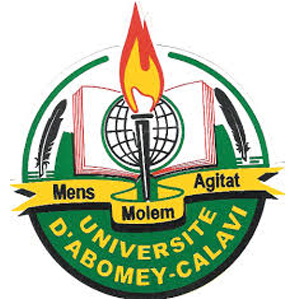Doctoral Programme Climate Change and Water Resources
Overview
The need to understand climate change as well as climate variability and their impacts on water resources cannot be overemphasized in West Africa. The region has arid, semi-arid and tropical climates and the impacts of climate change and climate variability on water resources vary in time, space, and intensity. Providing adequate water for people, for food production, and for sanitation are some of the challenges governments are facing. Economic growth, efforts to reduce poverty and enhance social change drive demands for water and the respective infrastructures to support food productions, generate energy and provide goods and services. Such developments have a significant impact on water resources and managing these is increasingly complex.
Management of Water Resources for Sustainable Economic and Social Development
Climate extremes have led to various catastrophes, such as floods, droughts, and hydro-energy shortcuts, which negatively impact human well-being, economic development and the achievement of the Millennium Development Goals (MDGs). Mismanagement of water resources leads to underuse of economic potential and to an inability to adequately deal with climate risks and hydrological variability. The region’s weak capacity to buffer and manage the effects of varying water availability generates uncertainties and risks for economic activities. Sustainable economic and social development at national and regional levels require that hydrological forecasting systems for communities at risk are continuously developed, which in turn demands an optimal combination of data, forecasting tools and well trained specialists.
Objectives
- Increase capacity building for qualified water resource scientists
- Strengthen e-science infrastructures for water education and training
- Contribute to filling thegaps between climate and water research findings and operational applications
- Promote awareness about the value of climate and water information
Curriculum
The curriculum of the Doctoral Programme on Climate Change and Water Resources combines basic courses including applied mathematics and statistics, applied physics, meteorology and climatology and specialized courses in Hydrology.
Course work: It is a three-year structured programme consisting of 6 months of (basic & specialized) courses followed by 12 to 18 months of research work leading to a dissertation and defense. Basic Courses (modules I & II) include Applied Mathematics and Statistics, Applied Physics, Meteorology and Climatology.
Specialized courses (modules III to VI) include Hydrology, Coupled climate systems related to land-use, hydrology, agriculture and policy development and integrated water resources management (IWRM), climate/hydrological modeling, Climate Change impact, adaptation, and mitigation.
Research: The research component includes proposal preparation and presentation in the first six (6) months of study, field work based on their area of specialisation and visits to Germany for specialized equipment and facilities training. The field work can be done at the lead university or at other WASCAL institutions depending on expertise (supervisor), equipment and accessibility to relevant data.
Dissertation and defense: Students should submit a dissertation on their research and publish at least one article in a reputable peer-reviewed journal. The defense of the dissertation is done at
Université d’Abomey-Calavi before a graduate committee that includes one professor from the German partner university and related professors from the other network universities.
University Abomey-Calavi of Benin
The University of Abomey-Calavi of Benin hosts the Doctoral Programme in the Faculty of Sciences and Technology (FAST). All senior staff in the faculty are well qualified and have good working relations at international level. Water-related education is also located within three other faculties: (1) Faculty of Agronomical Sciences (FSA) that offers degrees (BSc, MSc and doctoral) on land use and water management, irrigation techniques, analysis of small reservoirs and virtual water studies; (2) Abomey-Calavi Polytechnical School (EPAC) – Civil Engineering Department that offers degrees (BSc and MSc) in water education; (3) Faculty of Literature, Arts and Human Sciences (FLASH) – Department of Geography that offers degrees in climatology, water and society. These faculties are closely interlinked within a common coordinated training programme called PROfEAU (Programme de Formation en Eau) sponsored by Dutch cooperation.

Contact Information
Director
Dr. Julien Adounkpe
Email : julvictoire@yahoo.com
Deputy
Prof. Emmanuel Lawin
Email : ewaari@yahoo.fr
Secrétariat/Laboratoire d’Hydrologie
Faculté des Sciences Techniques (FAST)
Université d’Abomey-Calavi
BP 526 Cotonou
Tél: +229 90942033
Email: aafouda@yahoo.fr

